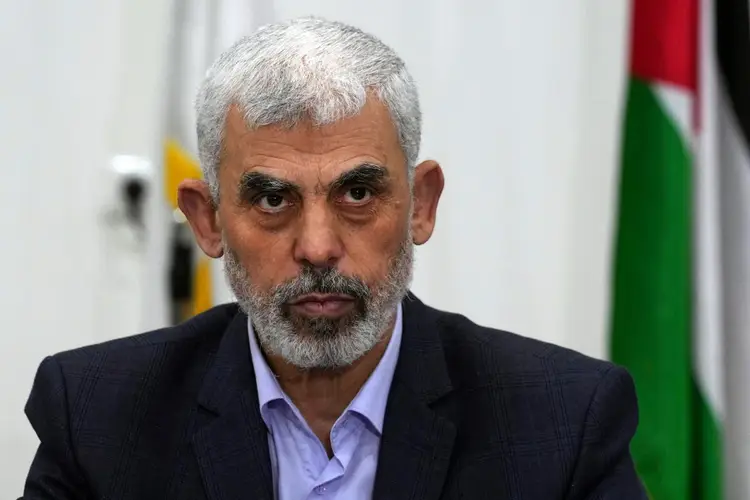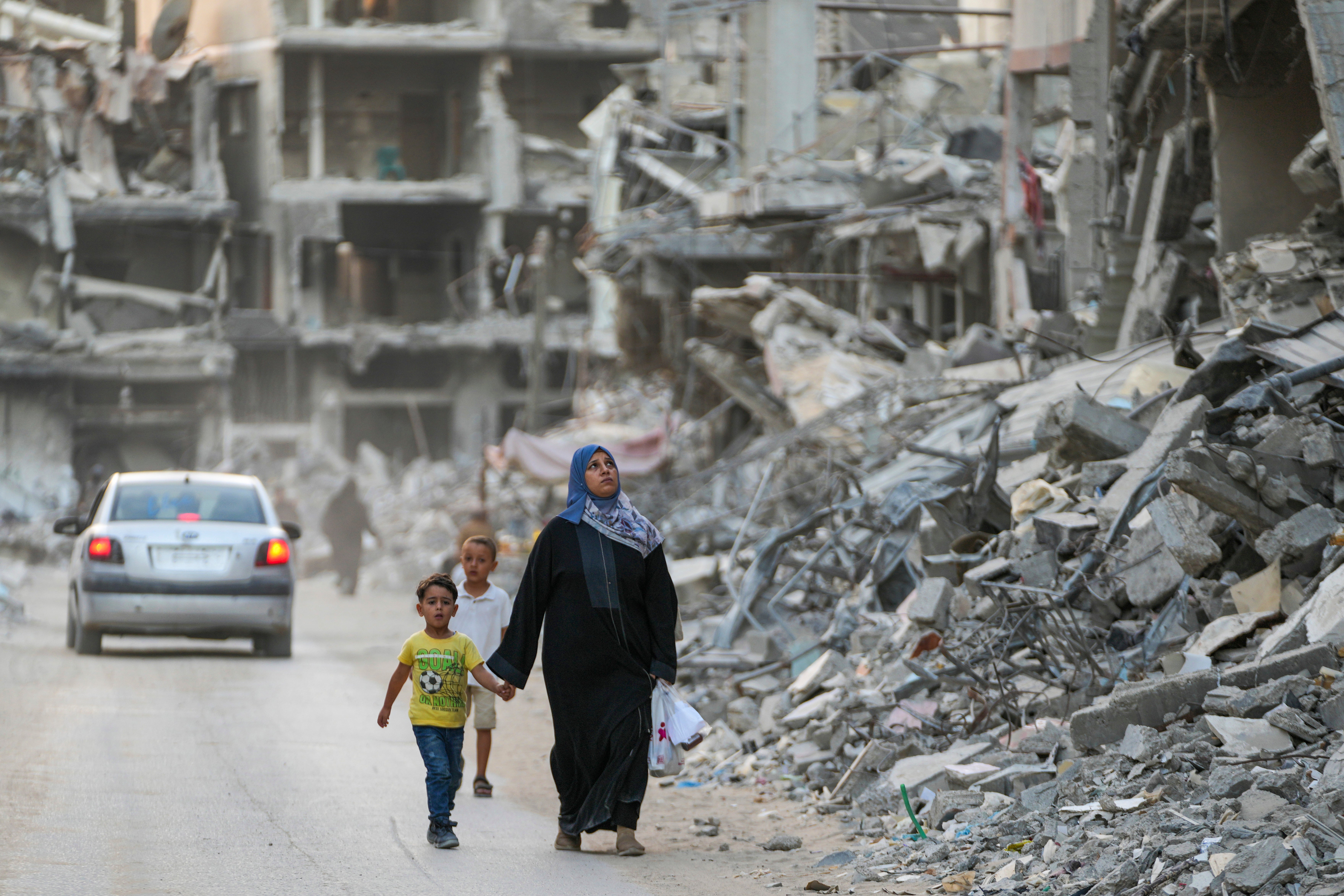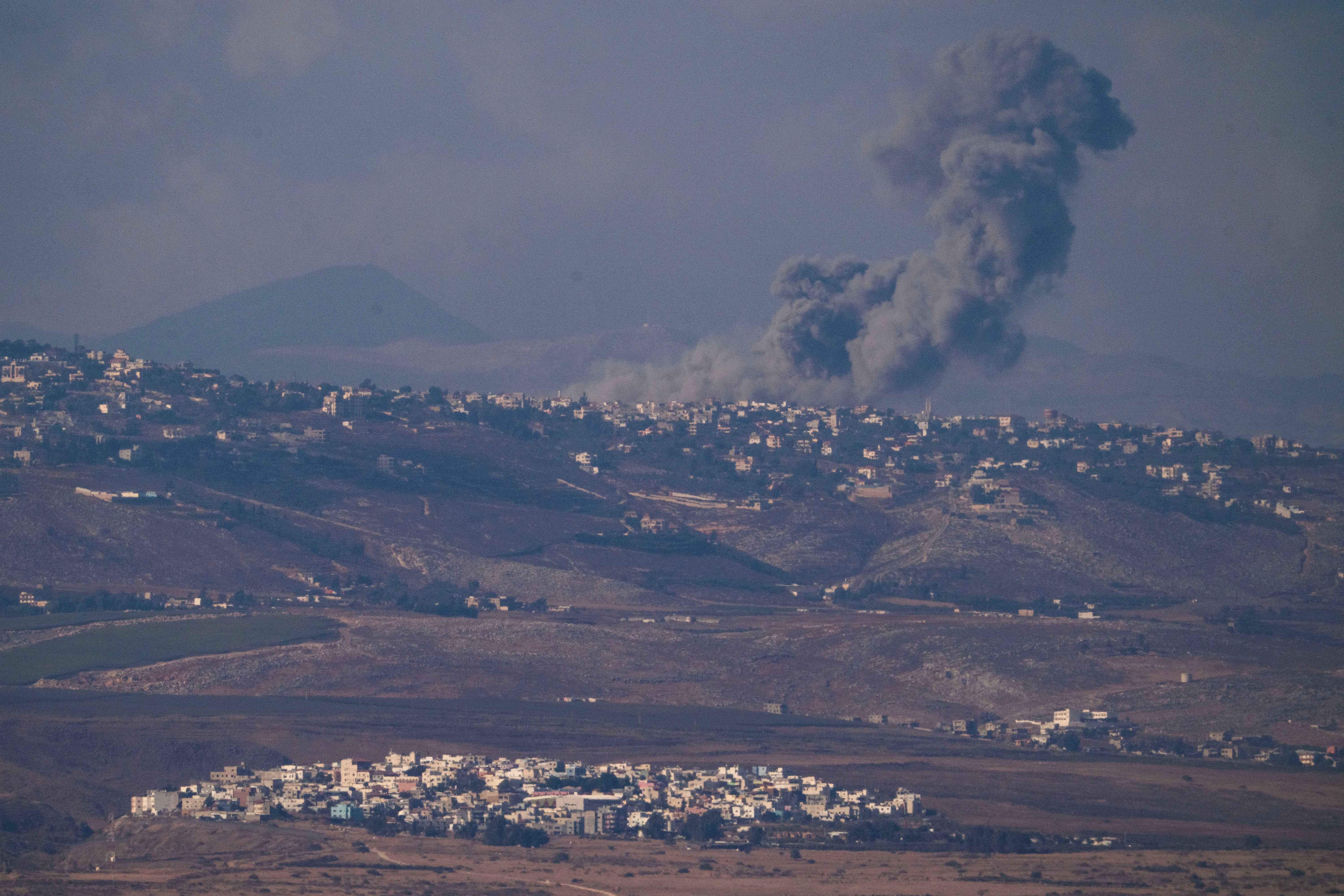Israel says it may have killed Hamas leader Yahya Sinwar in Gaza

Get Free Real-Time News Alerts In Your Inbox
Subscribe For Free Breaking News Updates
The Israeli military has announced that it is looking into the possibility that it may have killed Yahya Sinwar, the Hamas leader believed to be the architect of the October 7 assault and one of Israel's top targets, during operations in Gaza.

The Israeli military announced that they are investigating the possibility that Sinwar has died after a recent ground operation, which they claimed resulted in the deaths of three individuals. In a statement, they noted that they couldn't yet confirm the identities of the terrorists involved. According to reports, the Israeli cabinet has been briefed that the leader of Hamas is "probably dead."
The military indicated that there was no evidence to suggest that hostages were in the location where the three individuals were killed. Previously, the Israeli army had claimed that Sinwar was concealing himself among hostages in tunnels beneath Gaza.
The most recent footage of Sinwar shows an elderly man walking through a tunnel under Gaza, accompanied by his wife and children. This video was discovered by Israeli soldiers during a raid in Gaza earlier this year, but it is believed to have been recorded shortly after the attack on October 7.
Sinwar, together with Mohammed Deif, the leader of Hamas' military branch, is thought to have orchestrated the terror attack in Israel on October 7. Deif was killed in a Gaza airstrike in July. The attack on October 7 resulted in the deaths of approximately 1,200 Israelis, and 251 others were taken captive. In response, Israel launched a military campaign in Gaza from both land and air, which has led to the deaths of 42,000 Palestinians, as reported by health officials in Gaza.
Sinwar was appointed as the leader of the group after Ismael Haniyeh was killed in what seems to be an Israeli attack in Tehran in July. Sinwar has shown to be a particularly challenging target for Israel, and earlier rumors regarding his possible death have turned out to be false.
Israeli Defense Minister Yoav Gallant shared a message on social media platform X following the military's announcement, stating, "Our adversaries cannot escape. We will track them down and eradicate them."
The post featured images of Hassan Nasrallah, the former leader of Hezbollah, who was killed in Beirut last month, alongside Deif. There was an empty space for a third image positioned between them. All three images were marked out with red lines.
According to Channel 12, an Israeli news source, the event occurred on Wednesday in the southern town of Rafah. The Israeli forces in the vicinity were unaware that Sinwar was present. The soldiers noticed several militants entering a building and called for an attack, resulting in the collapse of the structure.

It wasn't until Israeli soldiers came to look over the destruction that they noticed one of the corpses bore a striking resemblance to Sinwar, according to Channel 12. The Israeli Army Radio reported that visual clues indicated that one of the individuals might be Sinwar, and DNA tests were underway. Israel possesses DNA samples of Sinwar from when he was incarcerated in an Israeli prison.
Sinwar was born in 1962 in a refugee camp located in Khan Younis, Gaza. He became one of the founding members of Hamas when it was established in 1987. Over time, he took charge of the organization's security division, where he focused on removing any Israeli spies infiltrating the group.
In the late 1980s, he was taken into custody by Israeli authorities, where he confessed to taking the lives of 12 individuals. This led to him being dubbed “The Butcher of Khan Younis.” As a result of his actions, he received a sentence of four life terms, which covered several crimes, including the murder of two Israeli soldiers.
In 2011, Prime Minister Benjamin Netanyahu freed Sinwar from prison as part of a deal to secure the release of Israeli soldier Gilad Shalit, who had been taken by Hamas during a raid across the border. Following his release, Sinwar swiftly ascended to the leadership of Hamas in Gaza, gaining significant authority over the area. He collaborated with Haniyeh to strengthen the group's ties with Iran and its allied groups throughout the Middle East.
In the past few months, Israel has targeted and killed multiple Hamas commanders in Gaza along with high-ranking Hezbollah officials in Lebanon, including the long-time leader Nasrallah. Israel has escalated its military operations, focusing particularly on Hezbollah along its northern border. This has included initiating a ground invasion into southern Lebanon alongside heightened airstrikes. Following Israel's offensive in Gaza, both Hezbollah and Israel have engaged in almost daily exchanges of gunfire across their shared border.
On Thursday, the Israeli military announced that within the last day, they had eliminated 45 Hezbollah fighters in southern Lebanon, including a battalion leader, and confiscated a significant amount of weapons. Over the course of the past year, Israeli activities in Lebanon have resulted in at least 2,350 deaths, as reported by the health ministry, and caused the displacement of more than 1.2 million individuals. Meanwhile, Israel has reported that around 50 of its own citizens, both military personnel and civilians, have lost their lives during this timeframe.

The Israeli military has released evacuation alerts for people living in the Bekaa Valley of eastern Lebanon, targeting three specific locations: buildings in the town of Tamnine and the villages of Saraain El Tahta and Sefri. They claim these areas are home to Hezbollah installations.
To ensure the safety of yourself and your loved ones, it's crucial that you leave this building and the nearby structures right away and maintain a distance of at least 500 meters from them," stated military spokesperson Avichay Adraee in a post on X.
Iran's partners in what they refer to as the "axis of resistance" – including Hezbollah, Hamas, the Houthis from Yemen, and various militia groups in Iraq – have launched assaults in the area to back the Palestinians in Gaza.
If Sinwar's death is validated, it will escalate tensions in the Middle East. Concerns about a broader conflict in the region have increased as Israel prepares for its reaction to the attack involving 180 ballistic missiles launched by Iran, a retaliatory measure against Israel’s intensified assaults on its allied groups.
On Thursday, the head of Iran's Revolutionary Guards issued a strong warning to Israel about launching any attacks on Iran. "We want to make it clear [to Israel] that should you initiate any act of aggression, we will retaliate directly at the same location," Hossein Salami stated in a speech broadcast on television. He also mentioned that Iran has the capability to overcome the defenses that have intercepted most of Iran's missiles, a system supported by the US and its partners.
There has been ongoing debate about the possibility of Israel launching an attack on Iran's nuclear facilities, something it has previously hinted at. Additionally, there are discussions about the potential for strikes on Iran's key oil installations.
Reports indicate that a recent Israeli airstrike on a shelter in northern Gaza has resulted in the deaths of at least 28 Palestinians, including children, according to a health ministry official in Gaza. Many others were injured, with health official Medhat Abbas informing Reuters about the ongoing violent campaign in that region. The media office of the Hamas-led government in Gaza reported that around 160 people sustained injuries from the attack.
The Israeli military reported that a large number of militants were at the site of the attack, asserting that they conducted a targeted operation against Hamas and Islamic Jihad members within the complex.
Israeli forces deployed tanks into Jabalia in the northern region, prompting worries from United Nations representatives about a lack of food and medical supplies.
A report from the International Labour Organization indicates that unemployment in Gaza has surged to nearly 80% since the beginning of the Israel-Hamas conflict, leaving almost the entire population of 2.3 million people in poverty.
The ILO stated that the conflict has brought about significant and extensive damage to the job market and the overall economy in both Gaza and the West Bank, affecting the entire Occupied Palestinian Territory in an unprecedented manner.
Since the start of the war, Gaza's economy has contracted by 85 percent.
In another development, Syrian government media announced that Israel launched an attack on Latakia, a coastal city in Syria, early Thursday morning. Meanwhile, US B-2 stealth bombers were deployed for the first time against Houthi forces, signaling a message to Tehran as well.
This is thought to be the first instance of the B-2 being deployed in a combat operation since 2017. While discussing the airstrikes targeting the Houthis—who have been assaulting vessels in the Red Sea—U.S. Defense Secretary Lloyd Austin emphasized that there are no locations beyond America's reach.
Austin stated, "This was an extraordinary showcase of the United States' capability to strike at locations that our enemies try to conceal, regardless of how deeply they are buried or how fortified they may be."
The fortified facilities housed components for weapons that the Houthis have utilized to attack both civilian and military ships in the area, according to Mr. Austin. However, the extent of the damage remains uncertain.
This report was assisted by contributions from Reuters and the Associated Press.

























































